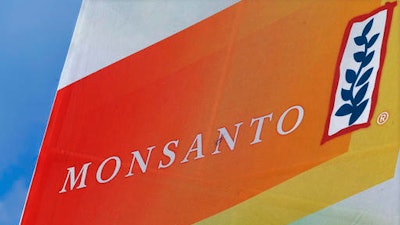
WASHINGTON (AP) — The Senate is taking a closer look at a proposed $66 billion merger of American seed and weed-killer company Monsanto and German medicine and farm chemical maker Bayer.
The deal combines two of the six U.S. and European companies that dominate the agrochemical market, and would create a global agricultural and chemical giant with a broad array of products. The Senate Judiciary Committee chairman, Republican Sen. Charles Grassley of Iowa, has said he's concerned that the consolidation could hurt American farmers who are already worried about rising costs.
After months of negotiations, St. Louis-based Monsanto Co. last week accepted an offer from Leverkusen, Germany-based Bayer AG that will pay $57 billion to Monsanto shareholders and assume $9 billion in Monsanto debt. The Senate panel is scheduled to ask questions of those two companies and others at a Tuesday hearing on consolidation and competition in the U.S. seed and agrochemical industry.
In a statement prepared for the hearing, Grassley noted low crop prices and higher seed prices, saying farmers are under "tremendous pressure" as the agriculture economy has slowed in the last couple of years.
Grassley said antitrust regulators should closely watch consolidation of the agricultural biotech industry and coordinate oversight between agencies. He said the Federal Trade Commission is currently reviewing another merger between Syngenta AG and the China National Chemical Corp and the Justice Department is looking at the merger of Dow Chemical and DuPont.
"To me, it looks like this consolidation wave has become a tsunami," Grassley said in the prepared remarks.
Set to testify are Jim Blome, president and CEO of Bayer CropScience North America, and Robb Fraley, executive vice president and chief technology officer of Monsanto. Officials from Syngenta, Dow AgroSciences and DuPont will also be there.
Bayer and Monsanto officials have said the merger could help farmers produce higher yields and meet a rising global food demand. Food could be made more affordable and the companies' combined expertise could help farmers limit chemical use and environmental impact, they said.
"It's going to take a lot of innovation to ensure that everybody can be fed," and the merged company will be able to speed up product improvements to help, Liam Condon of Bayer Crop Science said last week.
Bayer and Monsanto both own a variety of well-known products. Bayer sells crop protection chemicals used to kill weeds, insects and plant fungal diseases and also makes popular pharmaceutical products such as Bayer aspirin, Claritin allergy medicine and Alka Seltzer. Bayer also owns Dr. Scholl's foot products and Coppertone sunscreen.
Monsanto sells seeds for fruits, vegetables, corn, soybeans, cotton and other crops, plus heavily advertised Roundup weed killer. The company is a leading producer of genetically modified seeds engineered to resist drought and herbicides, among other things. Activists who oppose those so-called genetically modified organisms, or GMOs, have created a grassroots effort to vilify the company, even holding marches on city streets to protest Monsanto by name.
Bayer and Monsanto executives so far have not said if the Monsanto name will change. They say the combined company's seeds and North American business will still have a headquarters at Monsanto's St. Louis base.






















